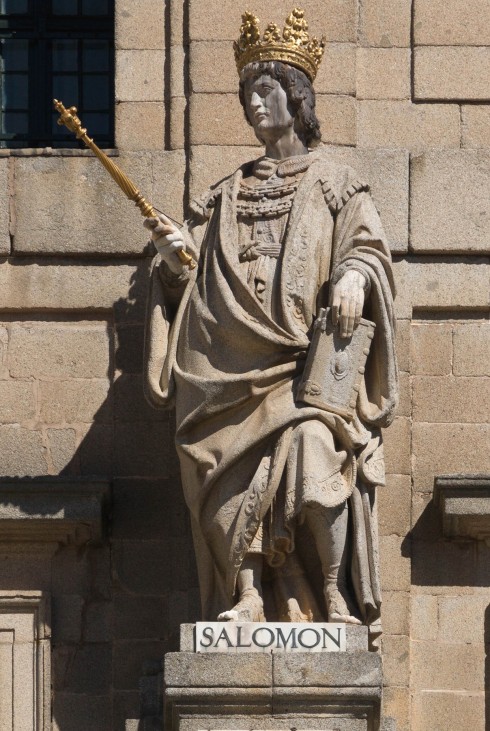First let’s try to understand some of the tricky aspects of the gospel reading for today’s Holy Mass.
“When the days for Jesus to be taken up were fulfilled…”
What does this mean? The time had come for the Lord’s…Passion, death, Resurrection, and Ascension—His Paschal Mystery.
Lord Jesus went to what city in order to complete the Paschal Mystery? Jerusalem!
 “On the way, they entered a Samaritan village.” On the way from where? Galilee. The land of Samaria lies between Galilee and Jerusalem.
“On the way, they entered a Samaritan village.” On the way from where? Galilee. The land of Samaria lies between Galilee and Jerusalem.
“But the Samaritans would not welcome him.”
Why wouldn’t they? This one is difficult.
The Jews who lived in Jerusalem practiced which religion? Judaism, of course. And the Jews in Galilee? Also, Jewish. What about the Samaritans? Jewish also!
Problem is, the Samaritans had their own version of Judaism. According to the Samaritans, the Temple of God was not located in Jerusalem. Where was it located, according to the Samaritans? Trick question! Nowhere—it used to be in the city of Shechem, but it had been destroyed hundreds of years earlier. The Samaritans thought that the temple in Jerusalem was only a counterfeit temple.
“Lord, do you want us to call down fire from heaven to destroy the Samaritans?”
The disciples thought, “These enemies are being mean to us, even though we are making the most important journey ever made. Therefore, let’s destroy ‘em.”
Lord Jesus did not even deign to reply. No fire from heaven. We journey on.
Now, we sometimes encounter people who seem to wander without a good, clear path to God, people whose path “is hidden from them,” as Job puts it in the first reading at today’s Mass.
Let’s always remember both aspects of the Lord Jesus’ demeanor during His trip to Samaria. On the one hand, He would not swerve from the path which the Father had laid out for Him. He must go to Jerusalem. The Samaritans were wrong to reject Christ’s pilgrimage to the holy city.
On the other hand, Jesus would not give a thought to violence towards anyone. He would not let Himself be distracted by self-righteous meanness, even towards people who were self-righteously mean to Him.
 Back in the 90’s, when I was young, I liked a particular female rock singer. She of course had a song bitterly excoriating her boyfriend who had left her for another woman. She sang, “And does she know how you told me you’d hold me until you died? But you’re still alive.”
Back in the 90’s, when I was young, I liked a particular female rock singer. She of course had a song bitterly excoriating her boyfriend who had left her for another woman. She sang, “And does she know how you told me you’d hold me until you died? But you’re still alive.” The holy angels are much faster than us.
The holy angels are much faster than us.


 Wise king Solomon wanted to focus on other things than his material needs and desires. Namely, praising God and seeking the truth.
Wise king Solomon wanted to focus on other things than his material needs and desires. Namely, praising God and seeking the truth. When some of us were born, St. Pio of Pietrelcina still lived on this earth. He died 46 years ago today.
When some of us were born, St. Pio of Pietrelcina still lived on this earth. He died 46 years ago today.
 For this life only.
For this life only.
 So the gospel reading for today’s Holy Mass has to be our fundamental guide regarding how we dispose ourselves with respect to the Blessed Sacrament.
So the gospel reading for today’s Holy Mass has to be our fundamental guide regarding how we dispose ourselves with respect to the Blessed Sacrament.